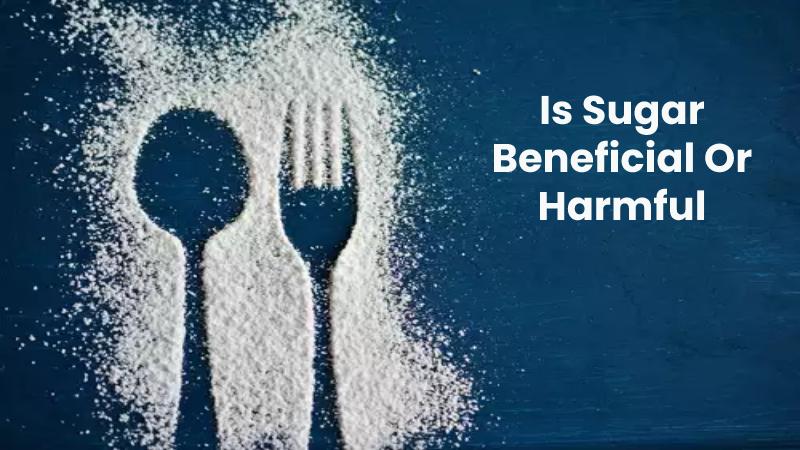Is Sugar Beneficial Or Harmful
Sugar is the most widely used and controversial food additive since no product has remained questioned and controversial.

The controversy can become so controversial, ranging from accusing sugar of all humans’ evils to being a compound that sweetens our lives.
In order not to be so extreme, we will try to answer some of the many doubts and myths around this food.
An Ingredient Present In Almost Every Meal
An important point when talking about sugar is to bear in mind that it is present and hidden in most of the food products we consume. Most industrial products contain sugar in high amounts that we must control so as not to exceed 50 grams per day considered acceptable for a 2000 kcal daily diet.
Examples:
- One sweetened yogurt: 30 g of sugar
- Three cookies: 10 g of sugar
- One glass of cola drink: 25 g of sugar
- 50 g of chocolate: 35 g of sugar
In a healthy diet, only 20% of the carbohydrates we consume daily should come from sugar.
Therefore, if we do not take into account the hidden sugar in food, in addition to what we add on our own to meals or drinks, the amount consumed will be well above those recommendations.
Sugar itself is not harmful since it is a natural substance found in fruits and vegetables.
Its function is to provide energy for all cells in our body to function.
The Pros And Benefits Of Sugar
Fast energy: sucrose in ordinary sugar remains quickly transformed into glucose and fructose, absorbing primary fuel.
Feeling of well-being: It alleviates the discomfort and anxiety that generates hypoglycemia (low blood sugar level. The idea is to consume complex carbohydrates, such as pasta, potatoes, rice, and many others, since the starch they contain is released little by little over hours, maintaining a stable blood glucose level, without ups and downs.
It is not allergenic: sugar is a refined and purified product, which does not trigger any allergic reaction. Instead, honey or syrups can do it.
The Cons Of Sugar
They correspond especially to common sugar and to all refined and purified sugars.
Replaces other foods: but it turns out to be a poor substitution. When we consume sugar, we can be satisfied, the appetite disappears, and as a consequence, the intake of other healthy and necessary foods remains diminished, being harmful to health.
Obesity and overweight: in both children and adults, sugar and sugary foods are among the causes of these two problems.
Dental cavities: all sugars, including natural ones from fruits, cause cavities since the bacteria present in the oral cavity transform them into acids that damage tooth enamel. In addition to sugars, other dietary and genetic factors and the lack of oral hygiene intervene in their formation.
Triglycerides: consumption of sugar increases triglyceride levels in the blood, thereby increasing the risk of coronary heart disease.
Nutritional imbalance: this remains because all sugars can be made up only of carbohydrates. So they lack protein, fat, vitamins, minerals, and fiber.
Metabolic imbalance: to metabolize sugar, which remains converted into energy in our body, we need vitamins and minerals. Sugar and refined foods lack vitamin B1 and calcium, the essential nutrients for carrying out this metabolism. For this reason, the organism remains forced to use its reserves of vitamins and calcium, which impoverishes or denies it, negatively affecting our health.
